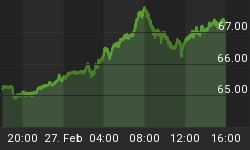Ever since Saudi Arabia first floated the idea of essentially building a moat/nuclear waste dump around Qatar, turning it into a toxic island, it’s been clear that this high-level squabble is personal and petty—not based on rational foreign policy or national security concerns.
Indeed, the Crown Prince often spends more time pecking at Qatar than it does countering its main nemesis, Iran.
The Saudi-led Gulf state blockade of Qatar failed, so now the game is one of spite, from designs for a toxic moat to rumors that MbS (the Crown Prince) is even trying to thwart Qatari art collection.
The economic blockade on Qatar hasn’t been fun or convenient—certainly; but it’s found plenty of workarounds, and foreign investors haven’t been shaken.
But one area where the blockade hurt most was the airline industry, which is expected to post major losses when the report for its last fiscal year, ended March 2018, is released.
Qatar Airways has been prevented from flying certain routes because of the blockade. To wit, the four countries (Saudi Arabia, UAE, Egypt and Bahrain) who joined in the economic blockade a year ago blocked the airline from access to 18 key cities.
The Saudis are anxiously awaiting the year-end report to see what kind of damage they’ve done, but Qatar Airways CEO Akbar al-Baker told reporters recently that they are taking measures to reduce the impact of the blockade for the current fiscal year. Qatar is setting up 18 new routes to compensate and is planning new investments, too—though they’ve been tight-lipped on the nature of those investments. Related: Merger Mania Takes Hold In Middle East
This week, Qatar Airways announced it would launch direct five-times weekly flights from Doha to Gothenburg, Sweden, beginning in mid-December.
In the meantime, high oil prices have been painful as well for the airline.
So far, though, the blockade hasn’t managed to cripple Qatar as planned. It took a few weeks to get over the loss of imports from regulars, and while the stock market lost some 10 percent in market value in the first four weeks, it’s pared at least 6 percent of those losses. And its key exports of natural gas haven’t been impacted. There will be no crippling of Qatar as long as it’s a gas giant.
The biggest slap in the face for the Saudis was a bond sale competition earlier this year.
In the second week of April, Qatar succeeded in raising $12 billion in its first bond sale in two years. That made it bigger than Saudi Arabia’s bond sale right before, and the biggest dollar bond this year from an emerging-market nation.
The Saudis only raised $11 billion—even though they had timed the sale specifically to suck up all the foreign investor interest before Qatar held its sale.
That event prompted some interesting push-back from the Royal Kingdom in the form of the nuclear waste canal that is of highly questionable use to Saudi Arabia.
Qatar has vast resources and plenty of cash to withstand the blockade, even if there are some painful moments. And the bond sale helped to shore up funds, with the IMF noting months ago that the Qatari economy is stabilizing.
Qatar Airways might take a big hit, but it won’t be enough to bring the country to its knees. Indeed, foreign direct investment in Qatar rose by some 27 percent last year, according to the UN’s World Investment Report 2018. Blockade aside, global investors are still confident in Qatar’s strong economy.
By Tom Kool for Safehaven.com
More Top Reads From Safehaven.com:
















